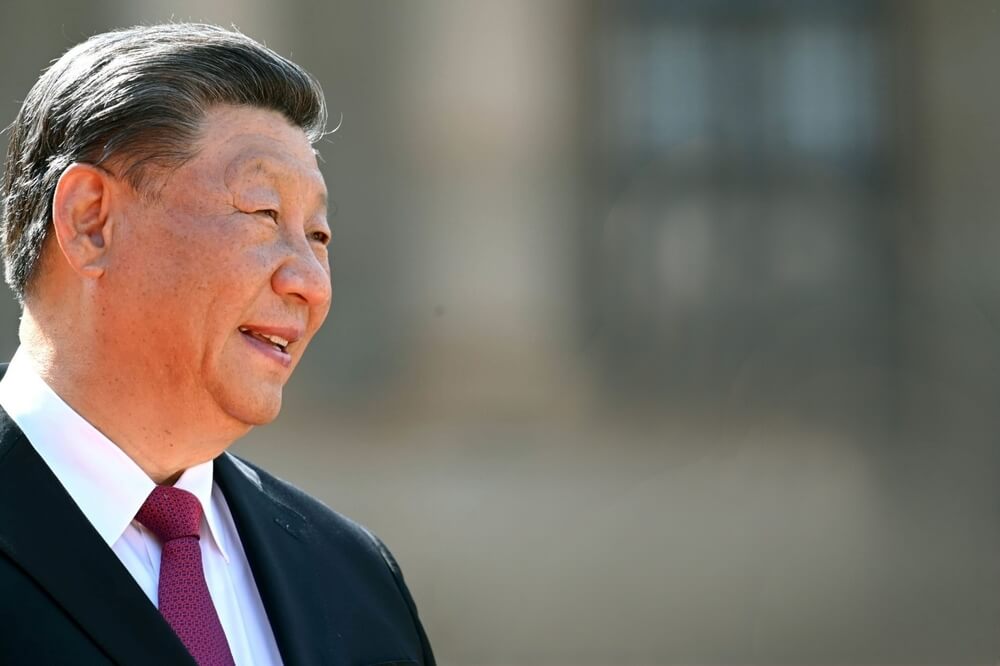The telephone conversation between the presidents of the US and China, Joe Biden and Xi Jinping, last Tuesday could not produce a significant breakthrough regarding any of the disputed issues because their list is quite long and the solutions are often mutually conditional.
When the call finished after an hour and 45 minutes, the 2 leaders might have been happier with the status of their policy towards both their partner and their largest rival than when they started.
The interpretations of the conversations published in Beijing and Washington understandably differ, as they emphasise what "our" leader said to theirs. But even that is enough to give a clear picture that both of them won and that nobody was defeated.
The conversation between Xi and Biden confirmed that high-level communication has been taking place between Washington and Beijing over the most complicated issues facing both countries and, consequently, global politics and the economy.
It followed only a week after Xi met with a large group of CEOs of major American companies and academics in the Great Hall of People in Beijing.
The conversation between the 2 presidents preceded the new visit of US Treasury Secretary Janet Yellen to China, where she will talk with the highest representatives of the government, the central bank, and the business community for the next 6 days.
Shortly after she returns home, US Secretary of State Antony Blinken will travel to Beijing.
The conversation between the 2 presidents paved the way for these significant meetings and provided a kind of guarantee that they would go well.
Taiwan priority
It is significant for Xi Jinping that he had a direct conversation with the US president only 2 and a half months after the presidential elections in Taiwan and the victory of Lai Ching-te, who will continue to lead a sovereigntist policy regarding the mainland.
Given that for Beijing, the issue of Taiwan always comes first in relations with the US, Xi used the conversation with President Biden to call on the US to exercise restraint ahead of the presidential inauguration in Taipei on May 20.
Xi called on the US to take "concrete actions" to demonstrate that they do not support Taiwan's independence
According to a statement from Beijing, President Xi called on the US to take "concrete actions" to demonstrate that they do not support Taiwan's independence.
This is an appeal, possibly a request to Washington, that the ceremony in Taipei on May 20 pass without the presence of high political figures from the US.
The last such case, the visit of House Speaker Nancy Pelosi to Taiwan in August 2022, opened a major crisis in mutual relations, triggered the aggressive manoeuvres of the Chinese army in the Taiwan Strait, and interrupted the military dialogue between the US and China for a long period.
Xi wants investors back
For President Xi, it might be just as important at this moment to stabilise economic relations with the US, without which he cannot stop the decline of domestic parameters, from growth to investments that have been leaving China for a long time.
In their last meeting, last November in San Francisco, Xi tried to encourage American investors to invest more in China. It would be logical to expect that he repeated a similar message to President Biden in a telephone conversation.
Beijing regards economic issues as being of utmost significance. The recent meeting between Chinese President Xi and the heads of major US corporations, as well as Secretary Yellen's forthcoming visit, indicate the efforts of the Chinese leadership to normalise relations with the US.
The topic regarding aggressive Chinese exports will be a significant point of Secretary Yellen’s discussions in China
On the other hand, President Biden insisted on the justification of American trade restrictions regarding the export of sensitive equipment to protect national security interests, even though the Chinese leader criticised those measures as an attempt by the US to "suppress China's economy".
The topic regarding aggressive Chinese exports of products that are essential for achieving green goals (solar panels, batteries, and EVs) due to the decline in domestic demand will be a significant point of Secretary Yellen’s discussions in China, given that this behaviour of China threatens the US industry.
Strengthened leadership
For President Biden, the conversation with the Chinese leader was important at this stage of the campaign for a new mandate to demonstrate that he is in complete control of relations with the biggest economic and political rival on the global stage.
Hence his insistence on China's role in security crises, his repeated request not to help Russia militarily, to suspend its aggressive actions in the South China Sea and towards Taiwan, and to influence the cessation of attacks by pro-Iranian Houthis on commercial ships in the Red Sea.
 President Xi called on the US to take "concrete actions" to demonstrate that they do not support Taiwan's independence
President Xi called on the US to take "concrete actions" to demonstrate that they do not support Taiwan's independence
Also, Biden purposefully showed persistence regarding Chinese demands for loosening trade restrictions, which in the pre-election months should be a message that he is strong enough to manage relations with China and defend the US economy from aggressive Chinese competition.
Both interlocutors got quite enough from this conversation and came out before their domestic public with strengthened leadership positions. This is very important for President Biden in light of his current campaign.
Xi Jinping is in a similar situation, given that even after a year and a half since the lifting of the lockdown, there have been no significant results regarding his announcements for the recovery of the economy.
All others could feel encouraged by the continuity of communication at the leadership level between China and the US, as countries that together account for 40% of global GDP and have a decisive influence on global political and security conditions.